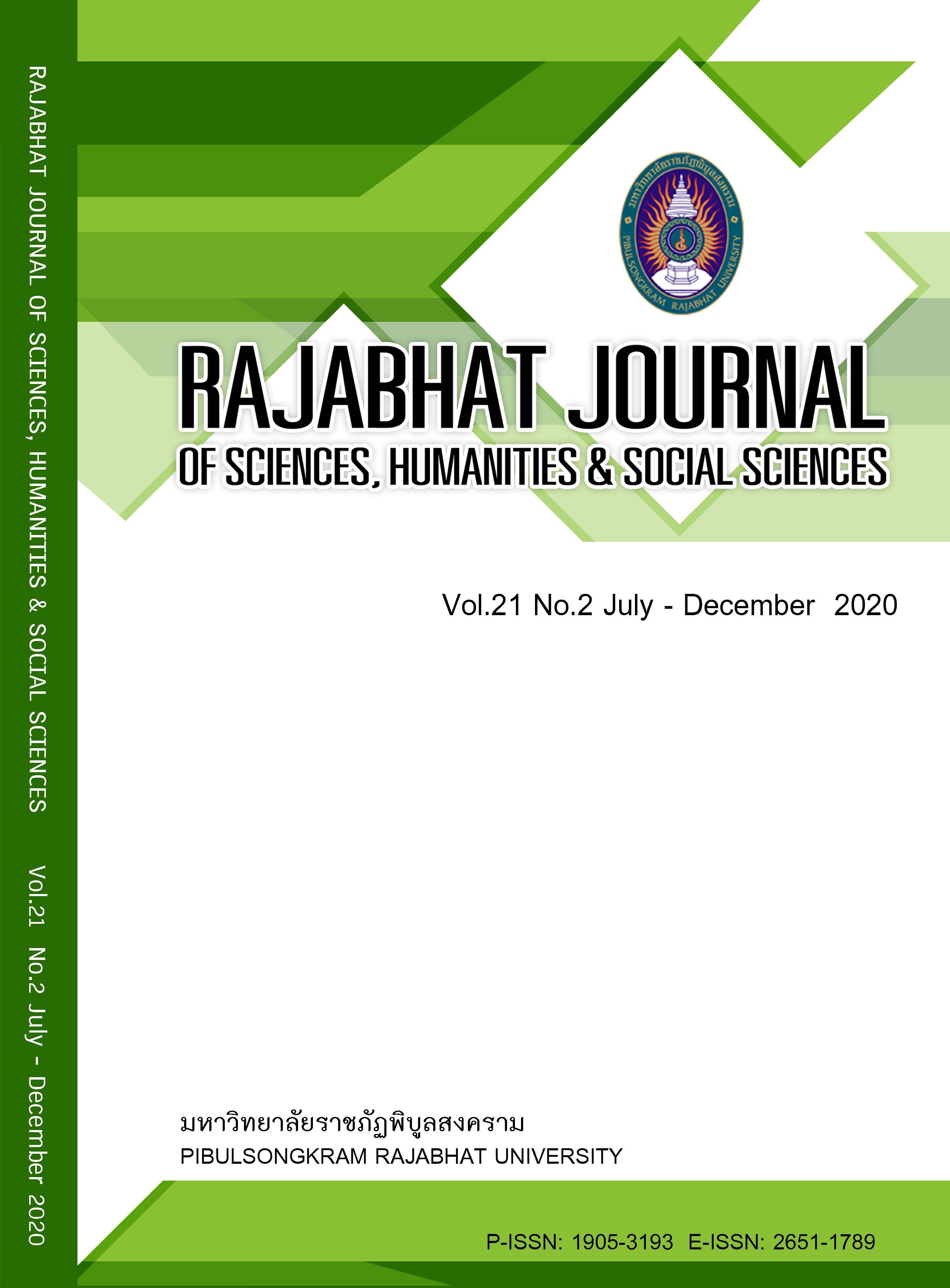MESSENGER’S CHATBOT BASED ON ARTIFICIAL INTELLIGENCE FOR DIGITAL LIBRARY SERVICE
Keywords:
Artificial intelligence, Chatbot, Digital library serviceAbstract
This research aims to develop the messenger’s chatbot based on artificial intelligence for digital library service. This machine learning application is a branch of artificial intelligence, using a supervised learning method to learn the conversations of user in large quantities of datasets. Data classification techniques were used classify word or sentence attributes with models that calculate the probability of a character set and then process the Natural Language Processing (NLP). Then analyzed by the Winnow algorithm, the model predicts in each sentence what the user wants to communicate and how to respond. These research tools consisted of AngularJS (Front-End), NodeJS (Back-End), MongoDB (Amazon Web Service), Firebase (Front-End), Heroku (Back-End) and Bitbucket. The development of a Facebook messenger’s chatbot based on artificial intelligence for digital library service was conducted with 3,361 messages as samples of chat data out of 220 total respondents (1,987 messages from users and 1,374 from librarians). All the messages from the users were analyzed and categorized based on their features with feature selection techniques. The results showed that 1,254 messages after analyzed with this technique were assigned Labels into N-Gram Function by using N-Gram of Letter to cut into syllables with N=3. Next, the performance of the model intended to be used with the Facebook messenger’s chatbot for digital library service was tested through Cross Validation K-Fold with K=10. The results of the model were classified into 3 different levels of deep learning. After the classification of the data based on the 3 levels of deep learning, results showed that the average accuracy of the 15 models was at 95.28%. To conclude, the messenger’s chatbot based on AI has sufficient performance and accuracy. The model is then applied to the library system.
References
Choemprayong S. Challenges Librarians and Informationists are Facing. Thai Library Associat. 2019: 3(2); 96-101.
Faceblog. This Social Network Information Blog. 2019. Retrieved from faceblog.in.th. Available at: https://faceblog.in.th/2011/07/wordpress-twitter-google-plus-statistics/Ivanovskaya. Accessed 29 January 2019.
He W, Guoqiang Y, Li DX. Devloping Vehicular Data Cloud Services in the IoT Environment. IEEE Transactions on industrial Informatics. 2014: 10(2); 1587-1595.
Indra ASM, Bhuva N. Enhancing the Academic Library Experience with Chatbots: An Exploration of Research and Implications for Practice. Journal of the Australian Library and Information Association. 2019: 68(3); 268-277.
Ivanovskaya A, Aksyonov K, Kalinin I. et al. Development of the text analysis software agent (chat bot) for the library based on the question and answer system. 2019. ITM Web of Conferences. 30, 2019; 1-6.
Lokman AS, Zain JM. Chatbot Enhanced Algorithms: A Case Study on Implementation in Bahasa Malaysia Human Language. Springer-Verlag Berlin Heidelberg. 2010: 87; 31-44.
Machin L. Why Machine Learning Matters. Retrieved from Math work. 2020. Available at: https://uk.mathworks.com/discovery/machine-learning.html?s_tid=srchtitle. Accessed 20 January 2020.
Mckie IAS, Narayan B. Enhancing the academic library experience with chatbots: an exploration of research and implications for practice. Journal of the Australian Library and Information Association. 68(3); 23-25.
Mikhail B, Alexander S, Rafael A. et al. DeepPavlov: Open-Source Library for Dialogue Systems. Proceedings of the 56th Annual Meeting of the Association for Computational Linguistics-System Demonstrations. 2018. Melbourne, Australia, 122–127.
Scott S, Matwin S. Feature Engineering for Text Classification in ICML, vol.99. Citeseer, 1999; 379–388.
Vahabzadeh A, Sahin N, Kalali A. Digital Suicide Prevention: Can technology become a game changer. Journal of Innovations in Clinical Neuroscience. 2016: 13(1); 16-20.
Wallace R. AIML Pattern Matching Simplified. 2003. Available at: http://alicebot.org. Accessed 20 January 2020.
Weizenbaum J. ELIZA-A Computer Program For the Study of Natural Language. Communication of the ACM. 1966: 9(1); 178-183.
Downloads
Published
How to Cite
Issue
Section
License
Each article is copyrighted © by its author(s) and is published under license from the author(s).










